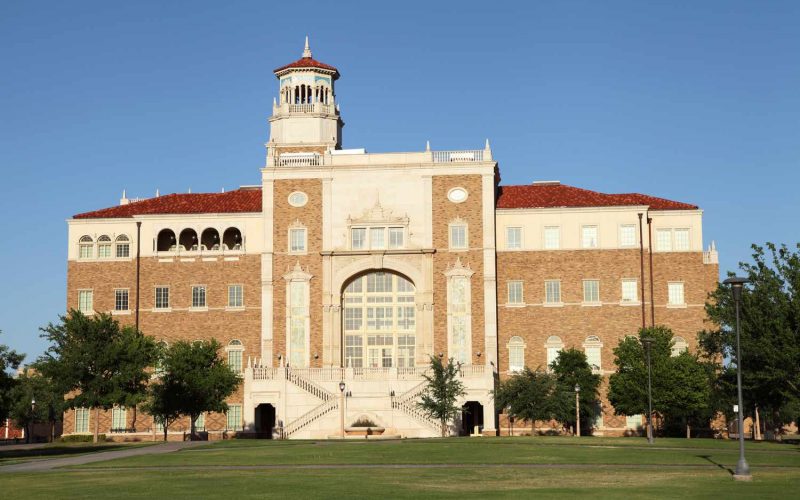Thinking about getting into college is awesome, and when it’s the prestigious Texas Tech University? It’s even more awesome. Texas Tech has a vibrant campus life, exciting programs, and that iconic Masked Rider.
But with any college, there’s one question that can feel super important: what are my chances of getting in? What is Texas Tech University acceptance rate?
Getting accepted into college can feel a little mysterious sometimes, and Texas Tech’s acceptance rate might seem like a secret code. Understanding the acceptance rate of a university plays a crucial role in shaping their choices.
In this article, we will break down everything you need to know about the Texas Tech University acceptance rate in 2024.
Table of contents
- About Texas Tech University
- An Overview of the Institution’s Distinctive Features
- Understanding Acceptance Rates: A Key Indicator for Prospective Students
- Factors Influencing Acceptance Rates at Texas Tech University
- Texas Tech University Programs
- Texas Tech Acceptance Rate
- Program-Specific Acceptance Rates
- FAQs
- Conclusion
- Reference
- Recommendations
About Texas Tech University
Texas Tech institution is a public, comprehensive institution that was established in 1923. The western two-thirds of Texas’ major institutions are located there.
The university’s single-campus structure, which includes a law school and a health sciences center, is unique in the state and makes it simple to transition to professional degrees in health care disciplines, advanced degrees, and law.
The Colleges of Architecture, Arts and Sciences, Business Administration, Education, Engineering, and Human Sciences have available programs.
Texas Tech is a leader in developing biotechnology and plant stress/water conservation research, enhancing the use of alternative fuels, and modernizing building codes through research on wind and disaster engineering.
Because of these research possibilities, students can apply to university-wide honors programs. The school’s 1,839-acre campus is in Lubbock.
Read Also: Texas Tech Spring Calendar: Get Ready For The Time of Your Life!
An Overview of the Institution’s Distinctive Features
Texas Tech University, located in Lubbock, Texas, has a rich history and a strong reputation for academic excellence.
1. Academic Programs
Texas Tech University offers various academic programs, including engineering, business, sciences, humanities, and arts.
The university is known for its robust undergraduate and graduate programs, providing students with ample opportunities to pursue their academic passions and career goals.
2. Campus Life
The Texas Tech campus provides a vibrant and engaging environment for students. With numerous student organizations, clubs, and activities, students have plenty of opportunities to get involved, develop leadership skills, and make lifelong connections.
The university also boasts state-of-the-art facilities, including modern classrooms, research labs, libraries, and recreational centers.
3. Faculty Excellence
Texas Tech University takes pride in its distinguished faculty members who are renowned experts in their respective fields.
These dedicated professors bring knowledge, expertise, and real-world experience to the classroom, ensuring students receive a quality education.
They actively participate in research, scholarship, and mentoring, creating a dynamic student learning environment.
4. Research Opportunities
Texas Tech University is committed to fostering research and innovation. The university encourages students to engage in research projects, providing them with valuable hands-on experience and the opportunity to work alongside faculty members on cutting-edge research initiatives.
This emphasis on research contributes to the university’s academic reputation and gives students a competitive edge in their future endeavors.
5. Community Engagement
Texas Tech University values community engagement and actively encourages students to participate in service-learning and volunteer opportunities.
Through partnerships with local organizations, students can contribute to the community, develop a sense of social responsibility, and gain a broader perspective on societal issues.
Also, read: Bentley University Acceptance Rate | Admissions Chances & Data
Understanding Acceptance Rates: A Key Indicator for Prospective Students
How much does the acceptance rate matter? The acceptance rate refers to the percentage of applicants admitted to a particular university or college.
1. Selectivity
Acceptance rates measure a university’s selectivity, indicating how competitive the admission process is. A lower acceptance rate suggests a more competitive environment where a higher proportion of applicants are not granted admission.
Conversely, a higher acceptance rate may indicate a less competitive admissions process, with more applicants being admitted.
2. Admission Chances
Understanding the acceptance rate of a university is essential for prospective students to assess their chances of being accepted.
It helps applicants gauge their competitiveness relative to other applicants and make informed decisions about where to apply.
Students with a solid academic profile may aim for universities with lower acceptance rates, while those seeking higher chances of admission might consider institutions with higher acceptance rates.
3. Quality and Reputation
Acceptance rates can also reflect the quality and reputation of an institution. Universities with low acceptance rates often attract high-achieving students, leading to a more competitive and academically-driven environment.
These institutions have rigorous academic programs, distinguished faculty, and a strong track record of producing successful graduates.
4. Admission Strategies
Knowledge of acceptance rates can also help applicants develop strategic admission plans. By researching and comparing acceptance rates across different universities, students can identify institutions where their academic profile aligns with the admission criteria.
This information can guide them in crafting a well-rounded application, emphasizing their strengths and increasing their chances of acceptance.
5. Financial Considerations
Acceptance rates can also impact financial considerations for prospective students. Some universities with higher acceptance rates may offer more financial aid or scholarships to attract a diverse and talented student body.
Understanding the acceptance rates and financial aid policies can assist students in planning their educational expenses and exploring available funding opportunities.
Read Also: Stony Brook University Acceptance Rate | Admissions
Factors Influencing Acceptance Rates at Texas Tech University
Understanding these factors provides valuable insights into the university’s admission process and the criteria for evaluating applicants.
1. Academic Performance
Academic performance, including high school GPA and standardized test scores, is a significant factor in the admissions process.
Texas Tech University typically considers the rigor of the applicant’s high school curriculum, class rank, and performance in core subjects when evaluating academic qualifications. Academic solid achievements increase the likelihood of acceptance.
2. Extracurricular Involvement
Texas Tech University values well-rounded individuals actively engaged in extracurricular activities, leadership roles, community service, and other non-academic pursuits.
Applicants who demonstrate involvement and commitment outside of the classroom have a competitive advantage, as it showcases their ability to balance academics with other responsibilities and contribute positively to their communities.
3. Personal Statements and Essays
The personal statements, essays, and supplemental materials applicants submit are crucial in admissions.
These components allow applicants to showcase their unique experiences, personal growth, aspirations, and how they align with the values and mission of Texas Tech University. Well-crafted and compelling essays can significantly impact an applicant’s chances of acceptance.
Also, read: Can You Use The Same Personal Statement Twice For UCAS In The UK?
4. Letters of Recommendation
Texas Tech University often requests letters of recommendation from teachers, counselors, or mentors who can provide insights into an applicant’s character, work ethic, and potential for success.
Favorable letters of recommendation highlighting an applicant’s strengths, achievements, and potential contributions can positively influence the admissions decision.
5. Demonstrated Interest
While Texas Tech University does not explicitly consider demonstrated interest as a primary factor in admissions, expressing genuine interest in the university through campus visits, attending information sessions, or engaging with admissions representatives can demonstrate a strong desire to attend and contribute to the university’s community.
6. Enrollment Capacity
The acceptance rate at Texas Tech University can also be influenced by enrollment capacity and institutional goals. The university sets specific targets for the number of students to enroll each academic year, considering available resources, facilities, and faculty capacity.
Consequently, the acceptance rate may fluctuate yearly based on these internal considerations.
Read Also: University of Vermont Acceptance Rate
Texas Tech University Programs
Texas Tech University offers a wide range of programs across various disciplines. Here are some of the major programs and fields of study available at Texas Tech:
1. College of Agricultural Sciences & Natural Resources:
– Agricultural and Applied Economics
– Animal Science
– Environmental Conservation of Natural Resources
– Plant and Soil Science
– Food Science
2. College of Architecture:
– Architecture
– Interior Design
– Landscape Architecture
3. College of Arts & Sciences:
– Biology
– Chemistry
– English
– History
– Mathematics
– Physics
– Psychology
– Sociology
4. Rawls College of Business:
– Accounting
– Finance
– Management
– Marketing
– Energy Commerce
5. College of Education:
– Curriculum and Instruction
– Educational Leadership
– Kinesiology and Sport Management
– Special Education
6. Edward E. Whitacre Jr. College of Engineering:
– Chemical Engineering
– Civil Engineering
– Electrical and Computer Engineering
– Mechanical Engineering
– Petroleum Engineering
7. College of Human Sciences:
– Community, Family, and Addiction Sciences
– Human Development and Family Studies
– Nutritional Sciences
– Personal Financial Planning
– Retailing
8. College of Media & Communication:
– Advertising
– Journalism
– Media Strategies
– Public Relations
– Electronic Media & Communications
9. College of Visual & Performing Arts:
– Art
– Dance
– Music
– Theatre and Dance
10. College of Architecture:
– Architecture
– Interior Design
– Landscape Architecture
These are just a few examples of the programs offered at Texas Tech University. The university also provides professional degree programs in law, medicine, and veterinary medicine.
It’s always recommended to visit the official Texas Tech University website for the most up-to-date and comprehensive information on their programs and offerings.
Read Also: Santa Clara Acceptance Rate | My Admission Chances
Texas Tech Acceptance Rate
The acceptance rate at Texas Tech University can vary from year to year due to many factors, including the number of applications received, available spots in the incoming class, and the overall competitiveness of the applicant pool.
It’s important to note that these factors can fluctuate, leading to changes in the acceptance rate from one year to another.
Students can identify any patterns or changes in the admissions process by analyzing historical acceptance rate trends. For example, if the acceptance rate has declined, the university has become more selective and competitive.
On the other hand, if the acceptance rate has remained relatively stable, it might suggest a consistent level of selectivity in the admissions process. The Texas Tech acceptance rate is 68%, making it moderately competitive.
The acceptance rate is generally an indication of how competitive a school is, but it is also an indication of how popular a school is.
To get into a school like Texas Tech, you must perform well in most areas of your college application.
Program-Specific Acceptance Rates
Within Texas Tech University, different colleges and programs may have varying levels of selectivity regarding admissions. This means that acceptance rates can differ significantly depending on the specific program or major that a student applies to.
Some programs may have limited spots or high demand, making them more competitive and potentially resulting in lower acceptance rates. On the other hand, other programs may have higher acceptance rates due to larger class sizes or a less competitive applicant pool.
When considering program-specific acceptance rates, prospective students should research the various colleges and departments at Texas Tech University. Each program typically has admissions requirements, criteria, and acceptance rates.
Factors that can influence program-specific acceptance rates include the popularity and reputation of the program, the number of available spots, the competitiveness of the applicant pool, and any additional admission requirements specific to the program.
Prospective students must assess their qualifications and align them with the admission requirements of the program they are interested in. They should review the program’s website or contact the department to gather detailed information about admission criteria, prerequisites, and acceptance rates.
It’s important to note that program-specific acceptance rates can vary significantly and may change from year to year.
Prospective students should consult the most up-to-date information from Texas Tech University and the specific programs of interest for accurate and current acceptance rate data.
FAQs
To improve your chances of being accepted to Texas Tech University, focus on maintaining strong academic performance, engaging in extracurricular activities that align with your interests, writing compelling essays, securing strong recommendation letters, and performing well on standardized tests.
Yes, specific programs or colleges within Texas Tech University may have different levels of selectivity and competitiveness. The acceptance rates can vary based on factors such as program popularity, available spots, and the qualifications of the applicant pool.
Texas Tech University operates on a rolling admissions basis, meaning applications are reviewed as they are received. However, submitting your application well before the stated deadline is essential to ensure full consideration.
Yes, Texas Tech University accepts transfer students from other colleges and universities. The transfer admissions process may have specific requirements and guidelines, including minimum GPA and credit hour requirements.
Conclusion
Prospective students should remember that acceptance rates can vary across different colleges and programs within Texas Tech University. Some programs may have higher acceptance rates due to larger class sizes or less demand, while others may be more selective with lower acceptance rates.
It’s crucial to approach the admissions process holistically, considering factors beyond acceptance rates.
Academic achievements, extracurricular involvement, essays, recommendation letters, and standardized test scores play significant roles in admissions decision-making.
Prospective students should strive to present a well-rounded application that showcases their strengths and demonstrates their fit for the university.
While historical acceptance rate trends can provide some context, relying on the most accurate and up-to-date information is essential. For the latest acceptance rate data and any specific information related to the 2024 admissions cycle, consult the official Texas Tech University website or contact the admissions office directly.
Reference
- studyabroad.shiksha.com – Texas Tech University admissions
- niche.com – Texas Tech University
- acceptancerate.com – Texas Tech University acceptance rate




